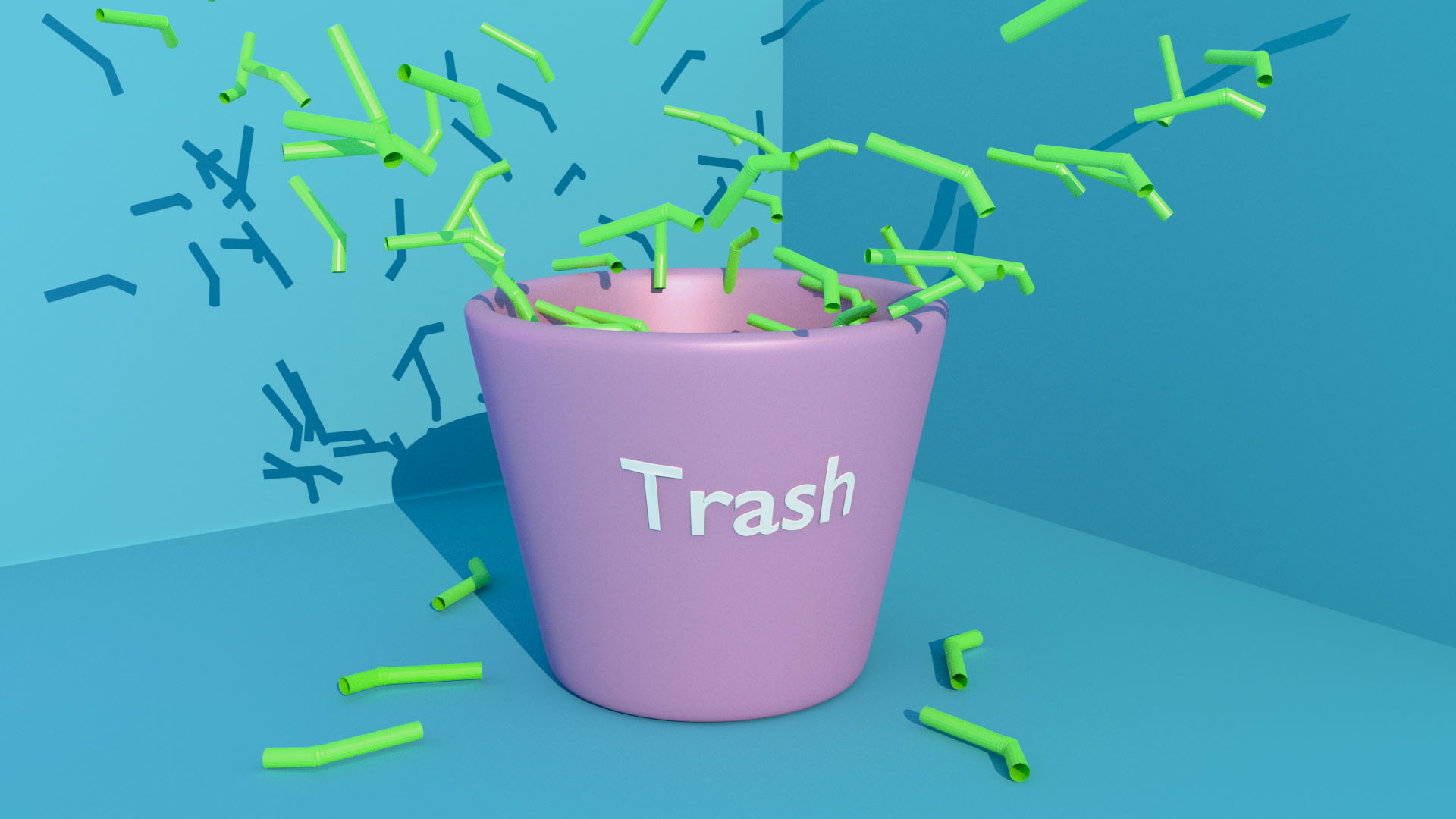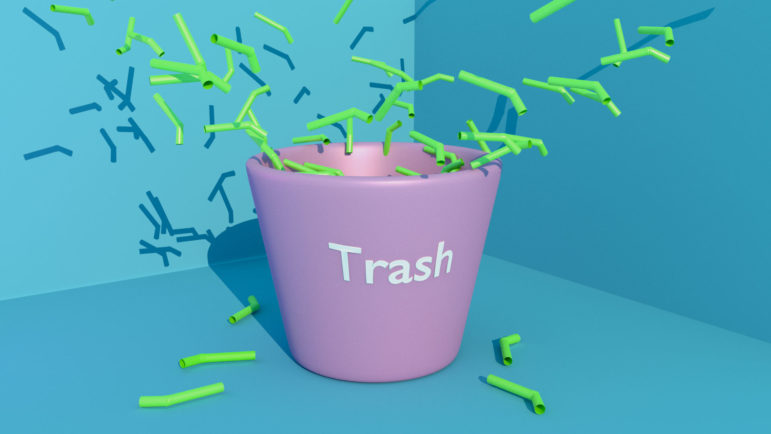
Tucked in an apron pocket, lying on a restaurant table, sitting in a cold glass of water. While hardly a noticeable item, for most people, it’s difficult to picture a life without straws.
According to EcoCycle, Americans use 500 million straws a day. Although straws are made of a recyclable type of plastic, they ultimately end up in landfills. Around the world, local, state and national governments are pushing for a ban on plastic straws.
“Straws are not recyclable because of how small they are,” said Hannah Towne, the Zero Waste Specialist for the San Mateo Recology center. “Any small plastic item not large enough to be captured at the recycling facility are instead landfilled.” Plastic lids, utensils and stirrers often face a similar fate.
In April, the United Kingdom became the first country to ban single-use plastic straws, with U.S. cities Seattle and Santa Cruz following suit. Even major businesses like Starbucks, McDonald’s and American Airlines have pledged to stop giving out plastic straws in the next few years.
“Plastic is not biodegradable so once it is thrown into a landfill the plastic stays there forever,” said senior Anna Zhang, president and founder of Aragon’s Leaders for Environmental Awareness and Protection club. “Often the plastic pieces can end up in oceans and destroy marine life.”
According to Bloomberg News, plastic straws only make up .03 percent of the plastic found in the ocean. However, plastic straws are often seen as a “gateway plastic,” meaning a straw ban would pressure businesses and consumers to seek alternatives to plastic in other aspects of their lives.
“It will force businesses to be more environmentally conscious,” said Katherine O’Dea, Executive Director of environmental organization Save Our Shores. “Hopefully [they will] only distribute them upon request versus automatically to people who … do not even use them.”
Banning plastic straws also may benefit businesses, as it improves their public image.
“Businesses also want to be seen as environmentally friendly to the public,” said sophomore Emily Feng. “I think it’s great that bigger companies are trying to raise awareness about plastic pollution.”
While some restaurants have already found sustainable alternatives to plastic straws, for others that depend on straws, like boba shops, the future is uncertain. San Francisco-based chain Boba Guys decided to switch from plastic to PLA straws, which are plant-based, only to find the PLA straws were included in the ban. Other options are limited and expensive — paper and compostable plastic straws can cost up to 15 cents more a piece, according to the San Francisco Chronicle.
While it may be challenging for businesses to adjust to life without straws, for many people with physical disabilities, it is impossible.
Alva Gardner of Ability Now, a center for the advancement of people with disabilities located in Oakland, is one of these people. Because of her cerebral palsy, a disorder which limits mobility and muscle strength, Gardner relies on plastic straws to help her drink.
“I use about three straws a day,” she said. “It’s ridiculous that restaurants wouldn’t have a straw option.” While companies like Starbucks have promised compostable alternatives for customers with disabilities, for many disabled people, silicone and plastic straws are the only viable options.
“I use about 3 straws a day … It’s ridiculous that restaurants wouldn’t have a straw option”
“One of my big issues with reusable straws when they’re glass or metal is that it is hard for me to relax my lips enough,” Gardner said.
For Gardner, going out to eat is already challenging.
“[A ban] would be one more thing that I had to plan for every day,” she said. “Another thing that becomes our responsibility to remember and always have with us. It doesn’t seem like a big deal but actually has a really big impact.”
Gardner, Towne and O’Dea agree a simple ban will not be enough to properly address the needs of the environment and the disabled community.
O’Dea suggests steps to move further away from a dependence on plastic.
“Fast food and take-out restaurants can move away from plastic food service ware … [and] charge a minimal fee,” she said. “Ordinances can also be written to exempt banning plastic straws for the disabled.”
While straw bans may be highly disputed within smaller communities, many environmentalists believe that the proposals have generated a sense of urgency surrounding the environment and the massive amount of waste our world produces. \
“We [need to] focus a lot on ecology and the planet, and how we can make it a better place without trashing it,” said Maureen DeCoste of Ability Now. “It just makes sense to move in that direction.”





